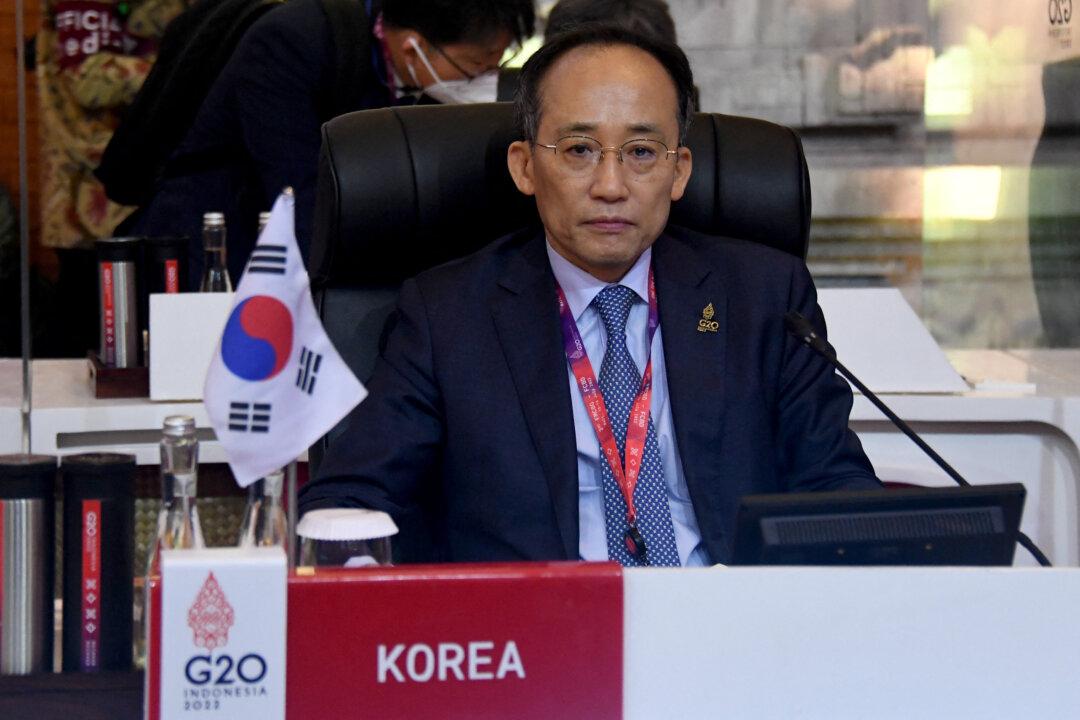Japan and South Korea agreed on May 2 to resume finance ministers’ talks that had been stalled for seven years, in the latest sign of thawing ties between the two nations strained by wartime disputes.
South Korean Finance Minister Choo Kyung-ho and his Japanese counterpart, Shunichi Suzuki, met on the sidelines of the annual Asian Development Bank (ADB) summit in the South Korean city of Incheon.





